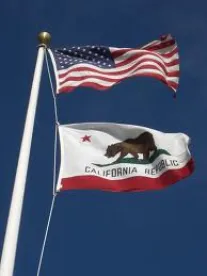California courts will generally give effect to a mandatory forum selection clause unless enforcement would be unreasonable or unfair, and the party opposing enforcement of the clause ordinarily bears the burden of proving why it should not be enforced. Verdugo v. Alliantgroup, L.P. (2015) 237 Cal.App.4th 141, 147 (2015). However, the burden is "reversed when the claims at issue are based on unwaivable rights created by California statutes [in which case] the party seeking to enforce the forum selection clause bears the burden to show litigating the claims in the contractually designated forum 'will not diminish in any way the substantive rights afforded . . . under California law.'" Ibid., quoting Wimsatt v. Beverly Hills Weight etc. Internat., Inc., 32 Cal. App. 4th 1511, 1522 (1995).
Article 1, Section 16 of the California Constitution provides in relevant part:
"Trial by jury is an inviolate right and shall be secured to all, but in a civil cause three-fourths of the jury may render a verdict. A jury may be waived in a criminal cause by the consent of both parties expressed in open court by the defendant and the defendant’s counsel. In a civil cause a jury may be waived by the consent of the parties expressed as prescribed by statute.”
In Grafton Partners L.P. v. Superior Court, 36 Cal.4th 944 (2005), the California Supreme Court interpreted this provision as rendering unenforceable pre-dispute contractual jury trial waivers. What does this mean for a mandatory forum selection clause that includes a pre-dispute jury try waiver? According to a decision published yesterday, such a clause is not enforceable because the party seeking to enforce the clause failed to show that enforcement would not substantially diminish the rights of California residents in a way that violates the state's public policy. Handoush v. Lease Fin. Group, 2019 Cal. App. LEXIS 1078.
Interestingly, the Court of Appeal makes no mention of U.S. District Court Judge Lucy Koh's rejection of a similar challenge to forum selection clauses in AJZN, Inc. v. Yu, 2013 U.S. Dist. LEXIS 2943. In that case, Judge Koh placed the burden on the party challenging the provisions, finding that "A mere unspecified 'risk' that a court could, in theory, enforce the waiver, without any citation to authority suggesting that this is a likely outcome, cannot carry AJZN's heavy burden to establish that "enforcement of the clause would contravene a strong public policy" of California".



 />i
/>i
